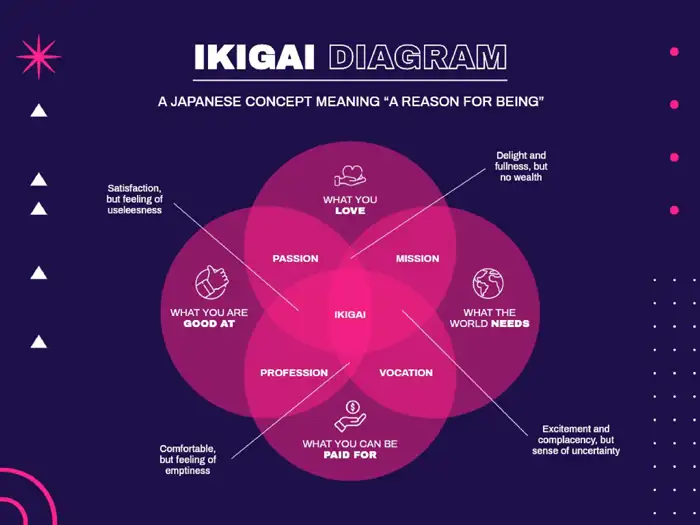In the vibrant, bustling heart of Okinawa, Japan, lies a community renowned for its longevity and zest for life. Here, amidst the lush greenery and azure waters, the concept of Ikigai flourishes. Ikigai, loosely translated as "a reason for being," is a philosophy that has captured the imagination of the world, promising a path to a fulfilling and purposeful life. But what exactly is Ikigai, and can it truly deliver on its promise of wellbeing? Video of the Ikigai Philosophy https://www.youtube.com/watch?v=SJ3n8bXX-2c What is Ikigai? Ikigai is not a rigid set of rules, but rather a framework for introspection. It visually ...
Home » Reading Practice in English » Live a Longer, Happier Life with the Ikigai Philosophy

Live a Longer, Happier Life with the Ikigai Philosophy
Updated: by Dr. Mohammad Hossein Hariri Asl
Time to Read: 5 minutes | 460 Views | 6 Comments on Live a Longer, Happier Life with the Ikigai Philosophy
Share This Post
About the Author
Dr. Mohammad Hossein Hariri Asl is an English and Persian instructor, educator, researcher, inventor, published author, blogger, SEO expert, website developer, entrepreneur, and the creator of LELB Society. He's got a PhD in TEFL (Teaching English as a Foreign Language).
Number of Posts: 4242



I would say that the Japanese have made a lot possible and brought a lot of great statements onto the market and that shows something like that in things that are things that are professionals and also make life much easier and stronger for many people so that I see it as a positive And it really got me in positive surprise
I would say that the Japanese have made a lot possible and brought a lot of great statements onto the market and that shows something like that in things that are things that are professionals and also make life much easier and stronger for many people so that I see it as a positive And it really got me in positive surprise
Rozita
This comment has been duplicated or copied. I’m still waiting for an independent comment from Robina.
The concept of finding joy and purpose in everyday activities can indeed make life feel richer and more fulfilling. It’s wonderful to hear that you’ve found these ideas both positive and surprising. Embracing such principles can definitely lead to a stronger sense of well-being and happiness.
Ikigai is an intriguing subject. It is a Japanese concept that represents the intersection of what you love, what you are good at, what the world needs, and what you can be paid for. By discovering our ikigai, we can find purpose and experience a sense of fulfillment in life.
Precisely! I selected Ikigai for our reading and conversation activities mainly because my passion, profession, mission and vocation vis-a-vis LELB Society have been profoundly rooted in this Japanese philosophy even if I was not familiar or aware of this school of thought.